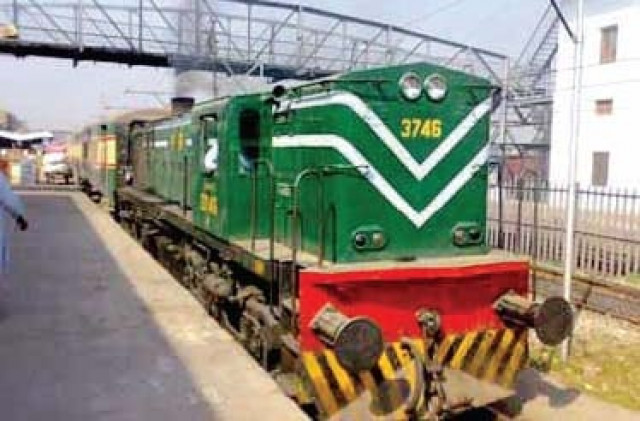Islamabad:
Federal Minister of Railways Muhammad Hanif Abbasi described a complete roadmap on Wednesday to reorganize Pakistani railways, saying that transformational progress was already under way despite limited resources.
Responding to legislative requests during the Questions-Question session of the National Assembly, he said that passenger equipment had been considerably improved in the main stations, including Rawalpindi City, Cantt, Raiwind, Khanewal and Multan, now aligned with modern standards for cleanliness, reference facilities and waiting areas.
He added that an improved advanced station was inaugurated in Karachi on September 10, modeled after recent upgrades in Lahore.
Stations in Hyderabad, Sukkur and Faisalabad would follow suit on September 30, with the complete transformation of all the major targeted stations for completion by December 31, 2025 and all smaller stations by June 2026.
“We are committed to providing standard international services to each class of passengers – economics, business and VIP, and I guarantee that the facilities will correspond to those observed in developed countries,” said Abbasi.
On the freight services, the minister noted that despite a shortage of bearings and wagons, the Pakistani railways had managed to manage an effective national freight network from the Sindh, generating significant income in the past year.
“Freight is the backbone of rail systems in the world. We are now heading for a turnaround in this segment,” he said.
Abbasi also said that the Narowal section had resumed operations after a 12 -year interruption, and that Musa Pak Express had been relaunched by Multan. Collaborations with the governments of Punjab, Sindh and Balutchistan were underway to raise and restore additional routes.
“We are working on agreements with Sindh to restore abandoned roads, and discussions are underway with CM Sindh this month. Similar cooperation with Balutchistan has enabled a 50 km increase in Sheikh Zaid in Kuchlak,” he said.
When he assumed the office, said Abbasi, he had focused on three key service areas: punctuality, cleanliness and food quality.
He noted that efforts had given measurable improvements, punctuality now reaching 90 to 95% on certain ways such as Lahore-Rawalpindi.
Addressing a question on public transport, the Minister said that the Pakistani railways were not directly involved in projects such as Karachi Circular Railway (KCR) or the Lahore metro, because these initiatives had fallen under the provincial jurisdiction after the 18th amendment.
However, he added, the ministry was available to extend technical support for demand.
In a historical development, Abbasi underlined the progress on the transnational rail link from Kohat to Mazar-i-Sharif via Kharlachi. The project, part of the regional connectivity initiative envisaged during the PDM government, had seen diplomatic and technical advances, including a trilateral signature ceremony in Kabul with Afghan and Uzbeks counterparts.
“The 850 km link with Central Asia, with an existing 75 km track in Uzbekistan, will be a change of game. A feasibility study will be completed by December 31 of this year,” he announced. “We have already allocated $ 5 million, twinned by Uzbekistan, while Afghanistan has provided total security for the route.”
Abbasi revealed that the Karachi-Rohri section (480 km) was close to the final agreement with a financial institution, while the Lahore-Rawalpindindi segment-which was also part of ML-1-had received an allowance of 250 billion rupees in the punjab budget.
“The bases of Karachi-Rohri and Lahore-Rawalpindi should start next year,” he added, noting that the negotiations for the remaining segments were underway with several stakeholders.
He said that the most modern station of the 77 years of history of Pakistani railways would be inaugurated in Karachi on September 10.




